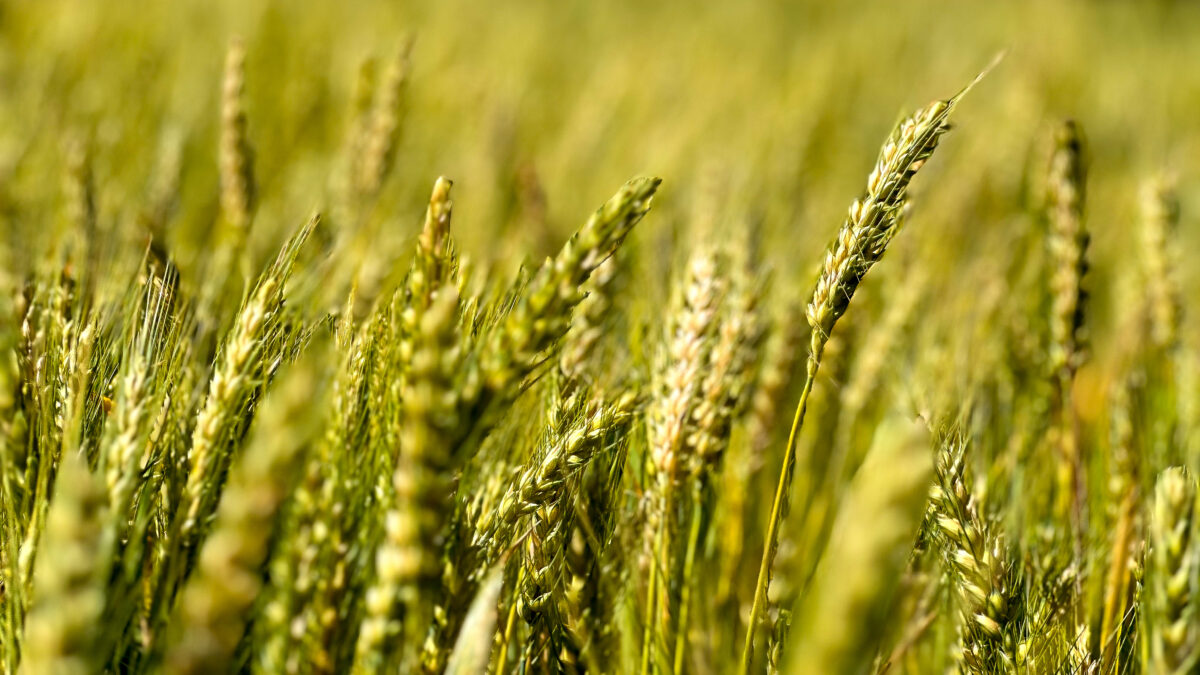Blockchain Record Keeping – Not Just a Fad
TOPICS
blockchain record keepingGuest Author
Special Contributor to FB.org

photo credit: AFBF Photo, Morgan Walker
Guest Author
Special Contributor to FB.org
By Will Rodger
Blockchain record keeping is more than just a fad – it’s something leaders at the world’s largest food companies have decided is the future of their businesses. And that means your farm or ranch may be adopting it in the very near future.
The math behind it is complex, but almost all that detail is irrelevant to the people who will need to use it.
At its heart, a blockchain is a big ledger – a massive list of transactions that must be filled out as goods flow from producer to retailer, or even back again.
Consider some recent headlines:
- Lettuce contaminated with E-coli makes it into the food supply, sickening hundreds. Public health researchers take months to pinpoint the origin of the greens. An entire region’s production is destroyed as a precaution.
- Hardworking garlic farmers in California slash their costs to the bone, only to be undercut by foreign competitors that use slave labor to produce the garlic they sell worldwide – garlic that’s no different to the consumer’s eye than any other.
- A beef farmer in Ohio complies with the organic standard but wonders how anyone can know if his competition is really doing the right thing.
All these problems arise because we don’t always know everything we need to know about food when we buy or sell it. In each case, someone wanted to trace food from producer to consumer, or vice versa. Each of these is a hard problem, and each can be helped by blockchain technology.
We once answered questions like these with paper trails, a process that was slow and cumbersome. Today we have lots of electronic records, but like the paper that came before, they’re scattered all over.
At its heart, a blockchain is a big ledger – a massive list of transactions that must be filled out as goods flow from producer to retailer, or even back again.
The Romaine lettuce outbreak took longer than anyone wanted to resolve; everyone had different records, and tracing the chain back to the suppliers took a long time.
Now, imagine all those records were entered into a single record that could be seen and modified by every company – every person, if necessary – who had anything to do with moving that lettuce. And just for good measure, imagine that all those entries were permanent, so that even if you made a correction, everyone would see that you’d made that correction.
That kind of transparency would give food companies – and farmers, too – far more useful information than they’d ever had.
Add radio-frequency identification tags, barcodes or QR codes to the food we’re moving and things get really interesting. Suddenly, those millions of pallets – even heads – of Romaine could be automatically tracked from the very field in which they grew, to the checkout line and the restaurant refrigerator. What once took days or weeks could take hours – or even minutes – to trace back.
The upshot: a functioning blockchain, supporters say, can trace outbreaks to the source, likely avoiding mass destruction of food that’s perfectly safe to eat and saving innocent farmers thousands, maybe millions of dollars in losses. Producers and food companies, meanwhile, can work with the technology with little more than a smartphone and a web browser.
IBM is the first major player out of the block. The New York giant has convinced dozens of U.S. companies such as Kroger, Walmart, Dole and Tyson Foods to join ongoing trials. Over in Europe, meanwhile, heavyweights such as Nestlé and Unilever are using the company’s blockchain service. France’s Carrefour discount chain is looking at the technology for its perishable-food sales.
Not all food, of course, is easily packaged and labeled – the massive quantities involved in soybean and wheat processing don’t yet make detailed sorting possible, for example – but the ability to trace grains to and from a specific elevator is better than what most food companies can do today.
Blockchain is coming. You ready?
Will Rodger is director of policy communications at the American Farm Bureau Federation.
Trending Topics
VIEW ALL